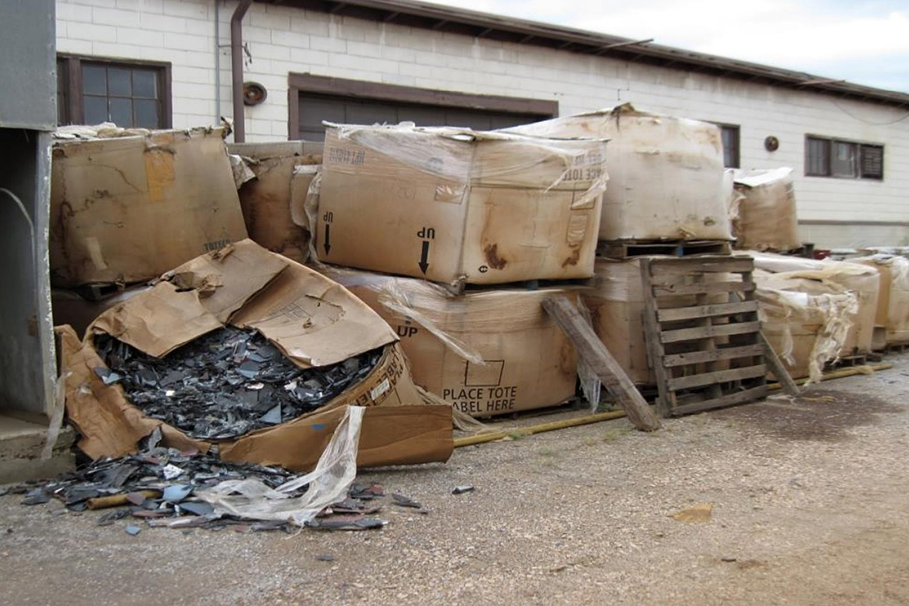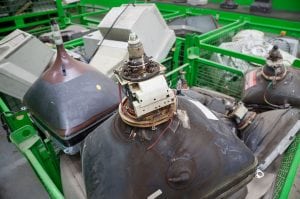
Companies that sent tens of millions of pounds of CRT materials to Closed Loop Refining and Recovery are publicly responding to lawsuits naming them as defendants.

Companies that sent tens of millions of pounds of CRT materials to Closed Loop Refining and Recovery are publicly responding to lawsuits naming them as defendants.

Part of URT’s CRT glass processing system in Janesville, Wis.
One of the country’s largest e-scrap companies is recycling CRT glass into a marketable product that could reduce the processor’s dependence on erratic downstream markets for leaded material.

A photo from court records shows CRT glass stored outside Stone Castle Recycling’s Clearfield, Utah facility.
A former e-scrap executive has been sentenced to one year in a federal prison for storing hazardous CRT waste without a permit.

The Nulife property in Virginia is currently listed for sale.
Nulife Glass has removed all CRT materials from its shuttered Virginia site, which was the last of the company’s locations where leaded glass was being stored.
 Two men accused of stockpiling and taking steps to illegally dispose of CRT glass have pleaded guilty to federal hazardous waste violations. One of them has been sentenced to probation.
Two men accused of stockpiling and taking steps to illegally dispose of CRT glass have pleaded guilty to federal hazardous waste violations. One of them has been sentenced to probation.
 Electronics manufacturers are proposing a nationwide point-of-sale fee to fund recycling of CRT devices, an industry group announced last week.
Electronics manufacturers are proposing a nationwide point-of-sale fee to fund recycling of CRT devices, an industry group announced last week.
 Federal charges have been filed against the owner of an Iowa e-scrap company, marking the latest of several legal cases related to the company’s alleged improper storage of CRTs and other e-scrap.
Federal charges have been filed against the owner of an Iowa e-scrap company, marking the latest of several legal cases related to the company’s alleged improper storage of CRTs and other e-scrap.

Participating in the E-Scrap Conference’s opening plenary were (from left to right) Tricia Conroy, Corey Dehmey, Dan Leif, Kevin Dillon and Bernie Lee.
Customers understand they need to pay fair prices for proper downstream management of CRTs, ERI’s Kevin Dillon said. But when he quotes 25 to 35 cents a pound to recycle a printer, they look at him like he’s crazy.
 An upcoming South Carolina processing facility will handle CRTs, circuit boards, scrap plastics and more, a company leader has confirmed to E-Scrap News.
An upcoming South Carolina processing facility will handle CRTs, circuit boards, scrap plastics and more, a company leader has confirmed to E-Scrap News.
 A trial is deciding whether federal Superfund law makes three South Carolina counties responsible for costs to remove CRT displays and other material abandoned by shuttered processor Creative Recycling Systems.
A trial is deciding whether federal Superfund law makes three South Carolina counties responsible for costs to remove CRT displays and other material abandoned by shuttered processor Creative Recycling Systems.

